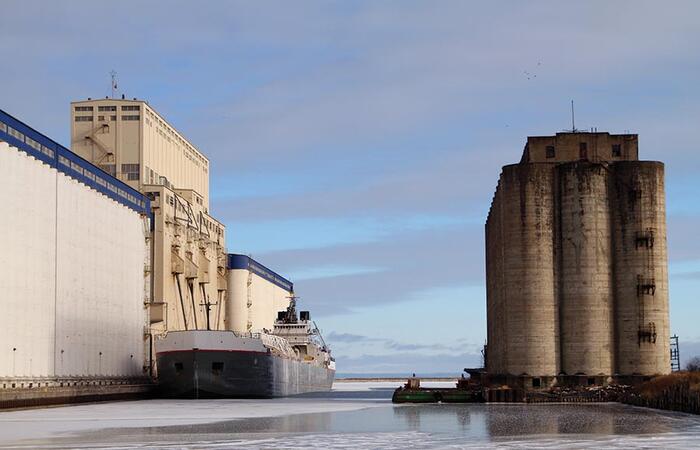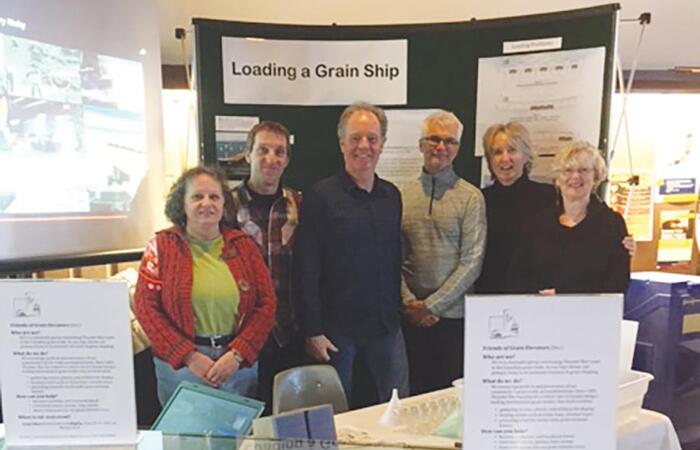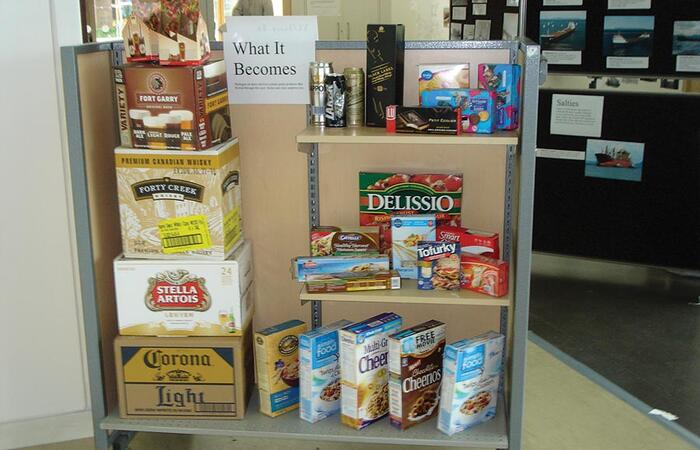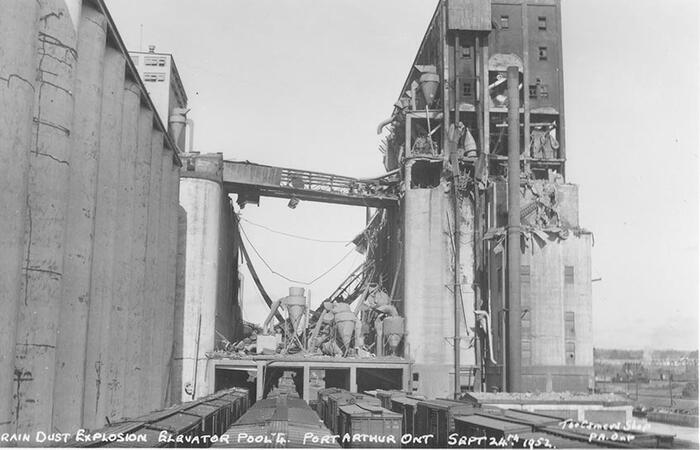In 2003, Friends of Grain Elevators (FOGE) was formed by persons who had worked in or were associated with the grain industry in Thunder Bay. They had all witnessed how much the grain trade had changed from an employer of thousands of people to only hundreds. Now, only six elevators were operating when there was once over twenty. They all felt strongly that the legacy left to us by a century of grain handling through our port, and the major impact it had on the development to their city, had to be preserved. Together they formed the core group of FOGE with the goal of recording, researching and finding a place to showcase the history of grain handling in the Lakehead, and to seek out like-minded people such as themselves. They quickly found them, and together they pursued their goal of preserving our grain industry’s past. It became both their mission and a labour of love. Fifteen years later, the core group who formed FOGE are still together actively working towards their goal.
On February 20, 2016, Thunder Bay was recognized for the important role it played in the development of Canada through the transshipment of grain from its port by the Honourable Catherine McKenna, Minister of the Environment and Climate Change and Minister responsible for Parks Canada. Our city served as the gateway for western Canada to access the Great Lakes and serve as the transshipment point of its grain to foreign markets. Thunder Bay was recognized as playing a crucial role in the development of Canada’s grain industry. Grain Transshipment at the Lakehead is among 38 newly designated nationally significant persons, places or events deemed to have helped define Canada’s history. A plaque was commissioned to commemorate this achievement that will be unveiled next year in Thunder Bay. The Honourable Patty Hajdu, Member of Parliament for Thunder Bay-Superior North applauded this National Historic Designation saying, “It’s wonderful to see an acknowledgement of the vital role the Thunder Bay region played in the building of our nation.”
Voices of the Grain Trade
A year ago, Friends of Grain Elevators finished a six year project sponsored by Robert Paterson of the N.M. Paterson Foundation called Voices of the Grain Trade. They wanted to preserve the experiences of the people who worked in the grain industry because once these people were gone the history of this important part of our city’s heritage would be lost. FOGE interviewed over 200 people who worked here in the grain industry and recorded their stories as they told them in their own voices. They heard stories of ghosts haunting the halls of the elevators, men who were trapped inside bins, grain dust explosions, and workers who were injured or lost their lives. One question they asked in the interviews was, “What part of your job contributed most to ensuring the quality of your work?” Some interviewees had to think. When they were working, to them at the time, it was just a job. After some thought, they concluded that even ensuring they weighed the product accurately was significant in ensuring a quality product. The Voices project was timely too. Some of the people they interviewed over the years have since passed on. One time, the day after they interviewed a man, they read his obituary in the newspaper. All of them will live on through this project. FOGE is currently working on a stage play based on the Voices of the Grain Trade project.
Still in the hunt
Friends of Grain Elevators was recently granted charitable status. It is also now incorporated and will hold its AGM on June 10-11 with lots of events planned. FOGE is still in the hunt for a home. They want to preserve a grain elevator and build a welcome centre to showcase the longstanding history and heritage of grain handling at the Lakehead. It’s a worthy goal. We could demonstrate to the visitors to our city how, through our port, we helped feed the world. That is a heritage Thunder Bay can be proud of.









